Brazil
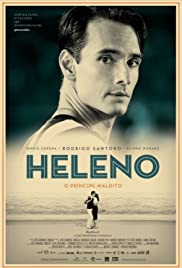
José Henrique Fonseca crafts an ambitious and long overdue homage to a central icon in Brazil’s 20th century history. Reminiscent of film noir classics, the biopic tells the glorious and tragic story of the legendary football striker Heleno de Freitas. The sumptuous black and white cinematography reflects the chic life of Rio de Janeiro in the 1940s as it fell under the spell of sports royalty. Heleno was no doubt one of the most popular players of his time for his bravura in the field and magnificent goal-scoring that lead the Botafogo team to the top and himself into a vicious downward spiral.
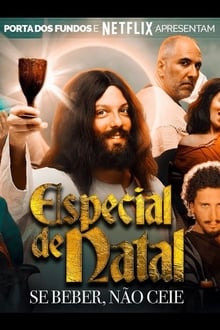
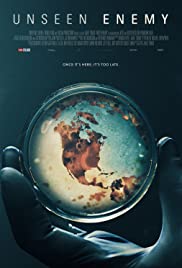
A documentary focused on infectious disease outbreaks.
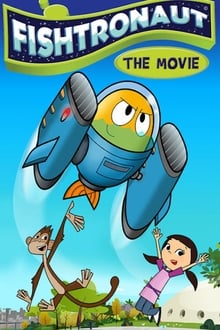
Fishtronaut, Marina and Zeek travel to the big city in search of Grandpa, only to find that everyone else has mysteriously vanished too.
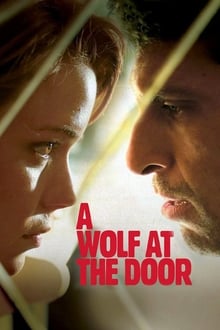
Based on real events, and set in Rio de Janeiro, A Wolf at the Door is the nerve-rattling tale of a kidnapped child and the terror of the parents left behind. When Sylvia discovers her six-year-old daughter has been picked up at school by an unknown woman, police summon her husband, Bernardo, to the station for questioning. From that point on, the film takes increasingly sinister turns as it delves into the events that led to the girl’s kidnapping. With plot twists that will keep the audience on the edge of their seats, A Wolf at the Door is a darkly disturbing journey into the extreme limits of the human capacity for obsession and revenge.
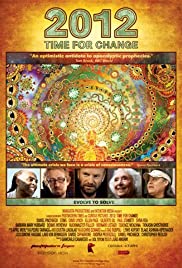
2012: Time For Change is a documentary feature that presents ways to transform our unsustainable society into a regenerative planetary culture. This can be achieved through a personal and global change of consciousness and the systemic implementation of ecological design.
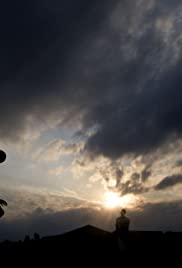
Away from professional stadiums, bright lights, and manicured fields, there’s another side of soccer. Tucked away on alleys, side streets, and concrete courts, people play in improvised games. Every country has a different word for it. In the United States, we call it “pick-up soccer.” In Trinidad, it’s “taking a sweat.” In England, it’s “having a kick-about.” In Brazil, the word is “pelada,” which literally means “naked”—the game stripped down to its core. It’s the version of the game played by anyone, anywhere—and it’s a window into lives all around the world. Pelada is a documentary following Luke and Gwendolyn, two former college soccer stars who didn’t quite make it to the pros. Not ready for it to be over, they take off, chasing the game. From prisoners in Bolivia to moonshine brewers in Kenya, from freestylers in China to women who play in hijab in Iran, Pelada is the story of the people who play.
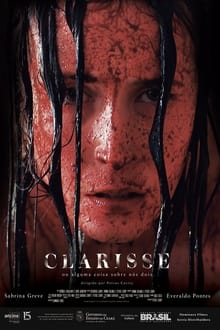
The dry quarry and a forest that still beats. A very sick father reviews the daughter. Resentments are brought to the table. The memory of the dead awakened by blood, objects, shadows and dreams affects Clarisse at this scenario of beauty and agony. Husband and business are expecting she in the city for a cathartic outcome.
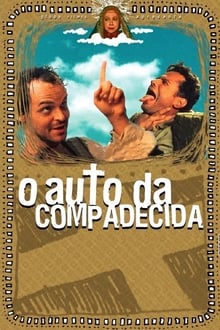
The lively João Grilo and the sly Chicó are poor guys living in the hinterland who cheat a bunch of people in a small Northeast Brazil town. But when they die, they have to be judged by Christ, the Devil and the Virgin Mary, before they are admitted to paradise.
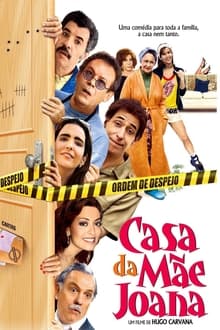
Quatro amigos que só pensam em curtir a vida, com grandes farras, mulheres e bebidas, são surpreendidos com uma ação de despejo. Precisando de dinheiro, a turma é obrigada a pensar naquilo que mais abominam: trabalhar! A confusão está formada quando cada um busca um meio fácil de conseguir dinheiro, com o mínimo de esforço. Os dias se passam as confusões hilárias só aumentam!
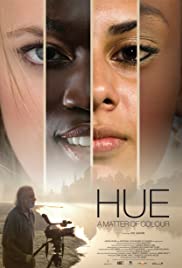
A documentary that weaves together personal journeys, historical facts and expert analysis to show the world through the eyes of those touched by the issue of “colourism”.
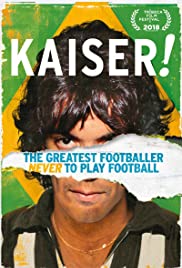
Documentary about a famous Brazilian footballer who never touched a ball.
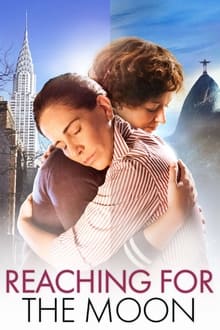
In 1951 New York poet Elizabeth Bishop travels to Rio de Janeiro to visit Mary, a college friend. The shy Elizabeth is overwhelmed by Brazilian sensuality. She is the antithesis to Mary’s dashing partner, architect Lota de Macedo Soares. Although frosty at first, the architect soon makes a play for Elizabeth and the poet finally succumbs to Lota’s advances. Mary is jealous, but unconventional Lota is determined to have both women at all costs. Their ménage à trois is thrown off balance when Lota starts work on her biggest project to date, designing Parque do Flamengo in Rio. Elizabeth accepts an academic teaching post in the USA and the women drift apart. Lota, at all other times brimming with self-confidence, is inconsolable. This eternal triangle plays out against the backdrop of the military coup of 1964. Bishop’s moving poems are at the core of a film which lushly illustrates a crucial phase in the life of this influential Pulitzer prize-winning poet
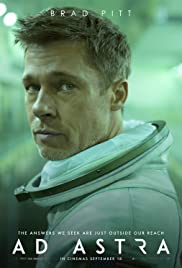
Astronaut Roy McBride must undertake a harrowing journey to the edge of our solar system when his long-lost scientist father seems to have resurfaced despite having been declared dead many years ago. His reappearance appears to be connected to a series of mysterious explosions and a top secret military project. As McBride makes his way across a series of increasingly dangerous outposts on the Moon and Mars, forces converge to stop him from finding answers while another impending explosion threatens to destroy life as we know it.
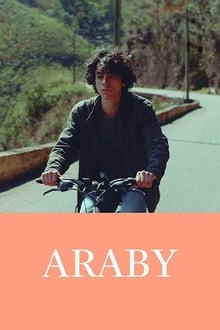
André, a teenager, lives in an industrial town in Brazil near an old aluminum factory. One day, a factory worker, Cristiano, suffers an accident. Asked to go to Cristiano’s house to pick up clothes and documents, André stumbles on a notebook, and it’s here that Araby begins — or, rather, transforms. As André reads from the journal entries, we are plunged into Cristiano’s life, into stories of his wanderings, adventures, and loves.

Two brothers develop a very close relationship as they are growing up in an idyllic and happy family. When they are young adults their relationship becomes very intimate, romantic, and sexual.

The border between Brazil and Paraguay: living on opposite sides of a big river, Brazilian boy Joca falls in love with indigenous-Paraguayan girl Basano. A magical tale of impossible love and adventure in this land full of memories of colonial wars and indigenous genocide.
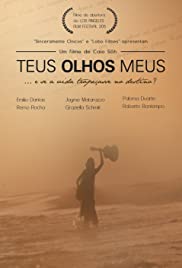
What if life blindsided destiny? What if happiness was found in the unlikeliest of places? When do we allow ourselves to embrace the new without fear of letting go of the past? Gil is a twenty year old young man that questions himself and the world. He is an orphan, raised by his aunt Leila and his uncle César. His lifestyle is fulfilled by his guitar, poetry and alcohol, generating a family war that causes Gil to run away from home causing him to leave behind all his belongings, security and the only love that he had till then, the love of his aunt Leila. With his guitar on his back, without a destiny, money or the support of friends, Gil meets Otávio, a music producer that will change his destiny forever.
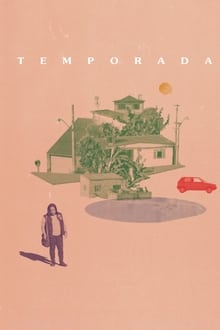
In order to take a new job as an employee in the public sanitation department, Juliana moves from the inner city of Itaúna to the metropolitan town of Contagem in Brazil. While waiting for her husband to join her, she adapts to her new life, meeting people and discovering new horizons, trying to overcome her past.
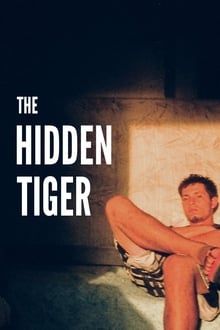
Juninho, Menor, Neguinho, Adilson and Eldo are young residents of the Bairro Nacional, outskirts of Contagem, in Minas Gerais, Brazil. Divided between work and fun, crime and hope, each will have to find ways of overcoming difficulties and taming the tiger inside their veins.